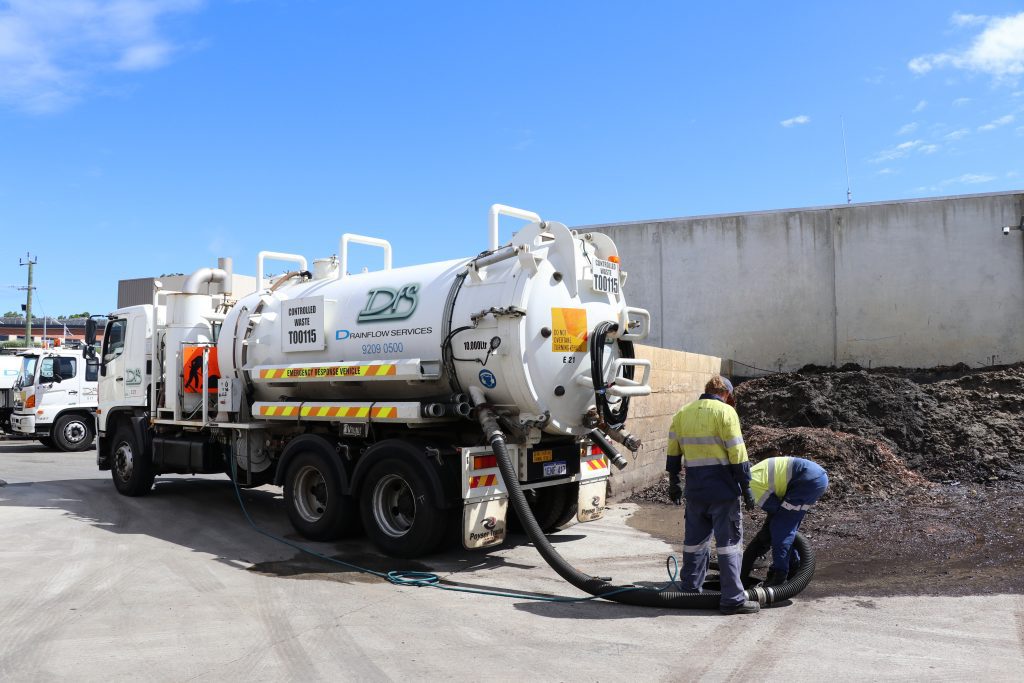How Reclaim Waste can Save You Time, Stress, and Money.
How Reclaim Waste can Save You Time, Stress, and Money.
Blog Article
The Best Guide To Reclaim Waste
Table of Contents6 Easy Facts About Reclaim Waste ShownThe smart Trick of Reclaim Waste That Nobody is Talking AboutReclaim Waste for BeginnersThe Ultimate Guide To Reclaim WasteReclaim Waste - Truths
Residential sewage waste refers to the waste and items from a domestic septic storage tank. The proper administration and disposal of domestic sewage waste call for fluid waste to be transferred to a sewer therapy plant where the proper techniques and tools are applied to cleanse and dispose of waste.
Business waste frequently consists of possible hazards, such as flammable materials or a combination of fluid and solid waste products, and needs an extra advanced and in-depth disposal procedure. The disposal of business waste generally includes the filtering of waste prior to transport to ensure risk-free and proper disposal. Hazardous waste is produced from by-products and drainage of industrial processes and manufacturing.
This sort of waste can not make use of the exact same sewage administration transport or processes as septic or industrial liquids. The hazardous waste administration procedure requires the assessment and screening of fluid waste before it goes through the disposal process (industrial wastewater treatment). Runoff waste is the fluid waste that originates from drainage and excess stormwater in very inhabited areas or cities
Overflow waste can cause contamination and flooding if not managed correctly. Guaranteeing proper waste monitoring can stop disasters and decrease environmental injury.
7 Simple Techniques For Reclaim Waste
Get in touch with PROS Services today to discover concerning our waste administration and disposal solutions and the appropriate means to care for the fluid waste you generate.
(https://disqus.com/by/reclaimwaste1/about/)This supposed 'wastewater' is not only an essential resource however, after treatment, will be launched to our land, waterways or the sea. Made use of water from bathrooms, showers, bathrooms, kitchen sinks, washings and commercial processes is understood as wastewater.

water utilized to cool equipment or tidy plant and tools). Stormwater, a type of wastewater, is runoff that streams from farming and city areas such as roof coverings, parks, gardens, roads, paths and seamless gutters into stormwater drains, after rain. Stormwater moves neglected straight to neighborhood creeks or rivers, at some point getting to the ocean.
Excitement About Reclaim Waste
In Queensland, a Website lot of wastewater is treated at sewer therapy plants. Wastewater is carried from domestic or industrial sites through a system of drains and pump stations, understood as sewerage reticulation, to a sewage treatment plant. City governments develop, keep and operate most sewage treatment plants. Operators are licensed under the Environmental Protection Act 1994 to discharge treated wastewater at an acceptable ecological criterion right into waterways.
The Division of Natural Resources encourages city governments about managing, operating and maintaining sewage systems and therapy plants. In unsewered areas, local federal governments may need homeowners to mount specific or house sewer treatment systems to treat residential wastewater from commodes, kitchen areas, shower rooms and laundries. The Department of Natural Resources authorizes the use of household systems when they are proven to be reliable.
In some brand-new class, treatment of some stormwater to get rid of trash, sand and gravel has actually started making use of gross contaminant traps. Wastewater treatment takes place in four phases: Eliminates strong matter.
Wastewater then moves right into big tanks where solids settle and are removed as sludge. Grease and residue are skimmed from the surface. Utilizes little living microorganisms called micro-organisms to break down and remove staying dissolved wastes and fine bits. Micro-organisms and wastes are included in the sludge. Eliminates nitrogen and phosphorus nutrients that can cause algal blooms in our rivers and endanger marine life.
The Ultimate Guide To Reclaim Waste
Nutrient removal is not readily available at all sewage treatment plants because it needs expensive specialist tools. It is becoming more typical in Queensland. Clear liquid effluent created after treatment may still consist of disease-causing micro-organisms. If this effluent is released right into waterways such as rivers or the sea, the micro-organisms will eventually die out.

This generally means wastewater has actually to be treated or impurities eliminated before it can be discharged to waterways. A lot of wastewater flows into the sewage system. Under the Act, local governments carry out authorizations and licences for eco appropriate activities (Ages) including wastewater releases that may have a regional influence. The division carries out authorizations and licences to Ages involving wastewater releases that might have a local or statewide effect.
Facts About Reclaim Waste Uncovered
Monitoring provides factual details concerning water top quality and can validate that permit problems are being satisfied. The info acquired through monitoring provides the basis for making water quality choices.
Report this page